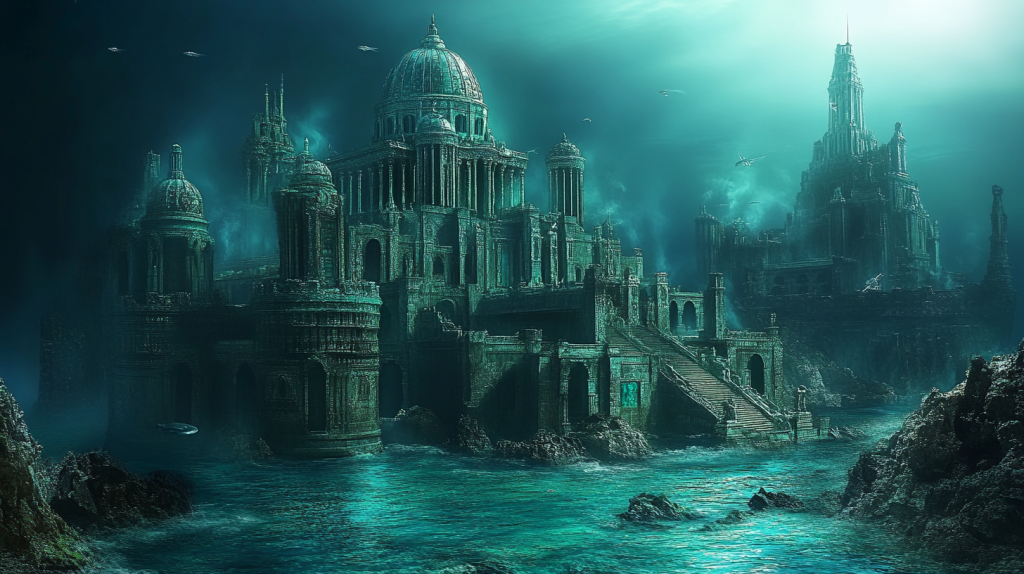The story of Atlantis has fascinated people for centuries, sparking endless ideas about where it might be and whether it ever existed. First told by the Greek philosopher Plato, the tale describes a mighty and advanced civilization that mysteriously disappeared beneath the ocean.
While some people think it’s just a myth, there are some pretty intriguing clues that suggest Atlantis might have been real after all. We’ve gathered these fascinating clues that could help unravel the mystery of Atlantis.
Plato’s Detailed Description
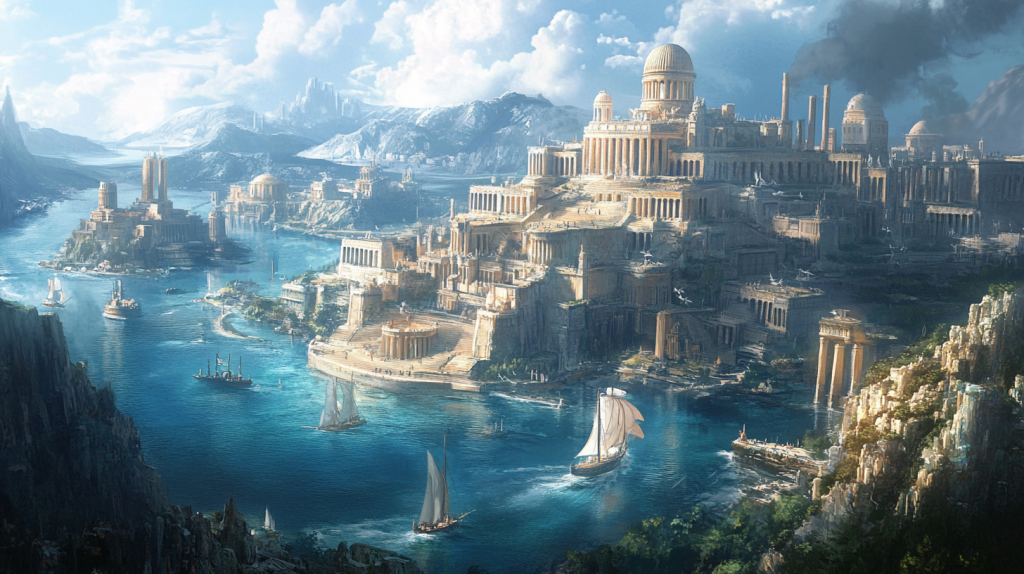
Plato’s writings are the foundation of the Atlantis legend. In his works Timaeus and Critias, he describes Atlantis as a vast island with advanced architecture, a powerful navy, and sophisticated technology. The level of detail, from the layout of the city to its moral decline, has led some to believe Plato based it on a real place rather than pure fiction.
The Location of the Pillars of Hercules
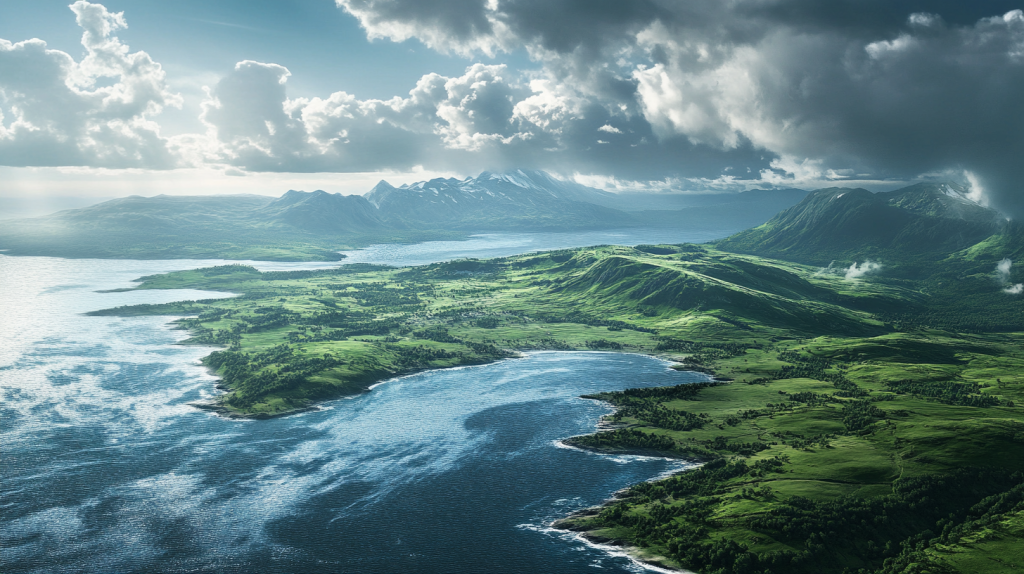
Plato stated that Atlantis lay “beyond the Pillars of Hercules,” which most scholars identify as the Strait of Gibraltar. This clue has led many to search for Atlantis in the Atlantic Ocean, the Mediterranean, and even the Caribbean. The exact location of these pillars remains debated, but they are a key reference point in the hunt for Atlantis.
The Catastrophic End
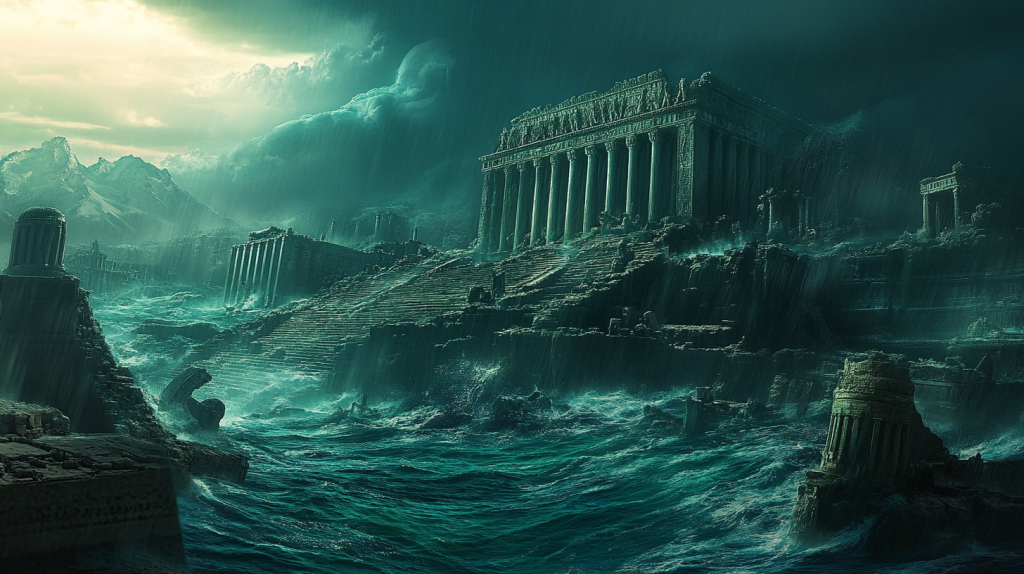
Plato claimed that Atlantis was destroyed in a single day and night of misfortune, sinking into the ocean due to a natural disaster. Some researchers link this description to real events, such as volcanic eruptions, earthquakes, or tsunamis, which have caused ancient civilizations to disappear overnight, suggesting a basis in historical fact.
The Minoan Civilization
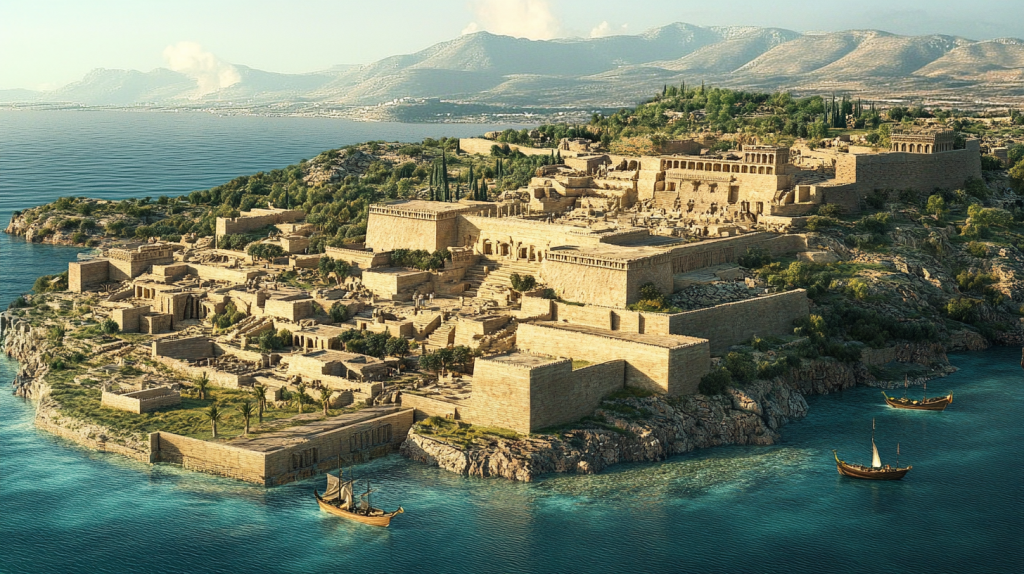
The Minoan civilization, which thrived on the island of Crete and nearby Santorini, shares similarities with Plato’s Atlantis. The Minoans were advanced, with impressive architecture and art, and their civilization was suddenly destroyed by a massive volcanic eruption around 1600 BCE. Some scholars believe this could have inspired the Atlantis myth.
The Riches of Tartessos
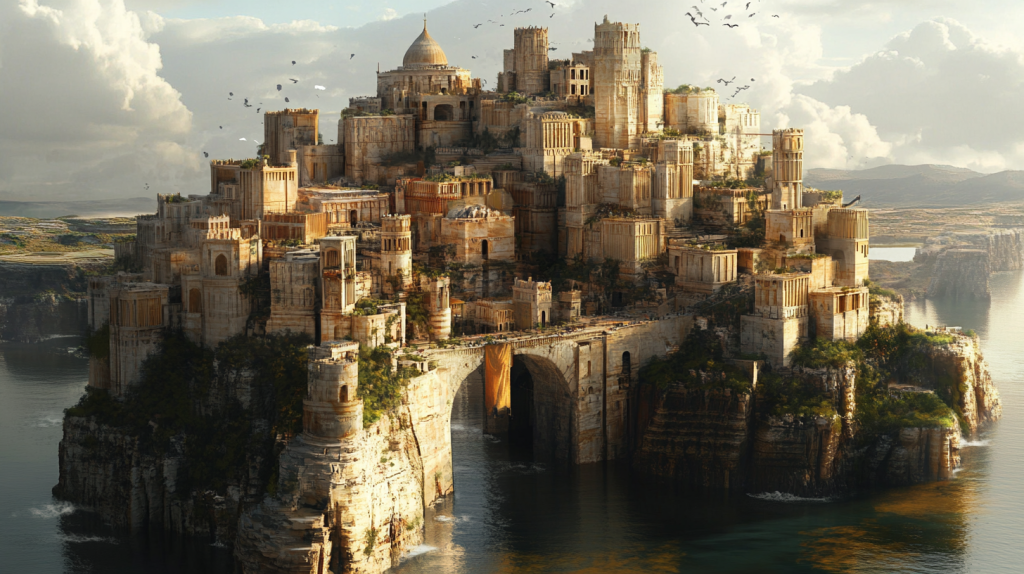
Tartessos, a wealthy and powerful civilization mentioned in ancient texts, was said to have existed in southern Spain. Like Atlantis, Tartessos was known for its vast riches and suddenly disappeared from history. Some historians speculate that Tartessos and Atlantis could be the same place, or that the story of Tartessos inspired the legend of Atlantis.
Ancient Maps and Atlantis
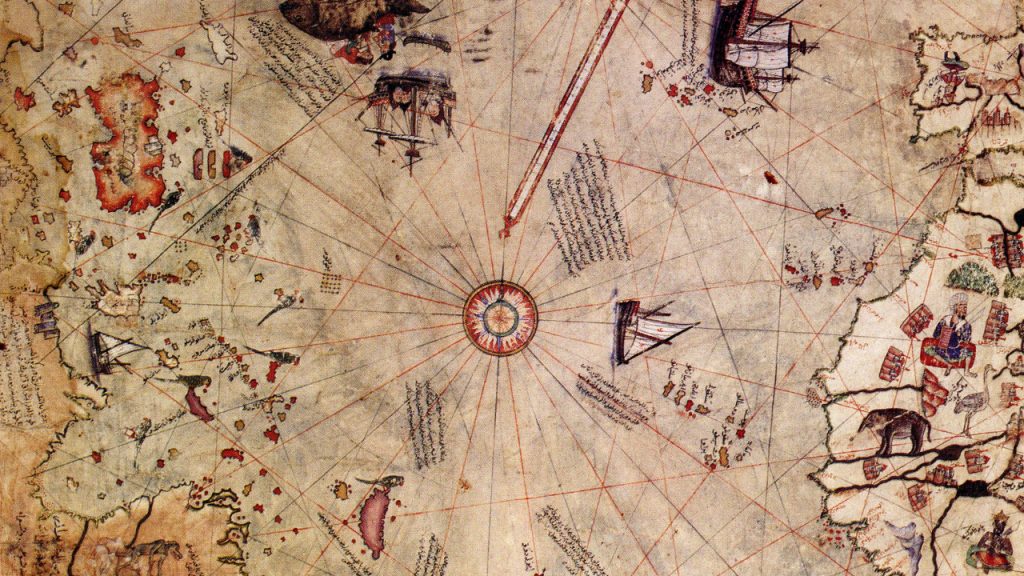
Several ancient maps, such as those by the 16th-century cartographer Piri Reis, depict lands that resemble Atlantis. These maps have fueled speculation that ancient explorers might have known of Atlantis’s existence. While these maps are controversial and often debated, they add another layer to the mystery of Atlantis.
The Eye of the Sahara (Richat Structure)
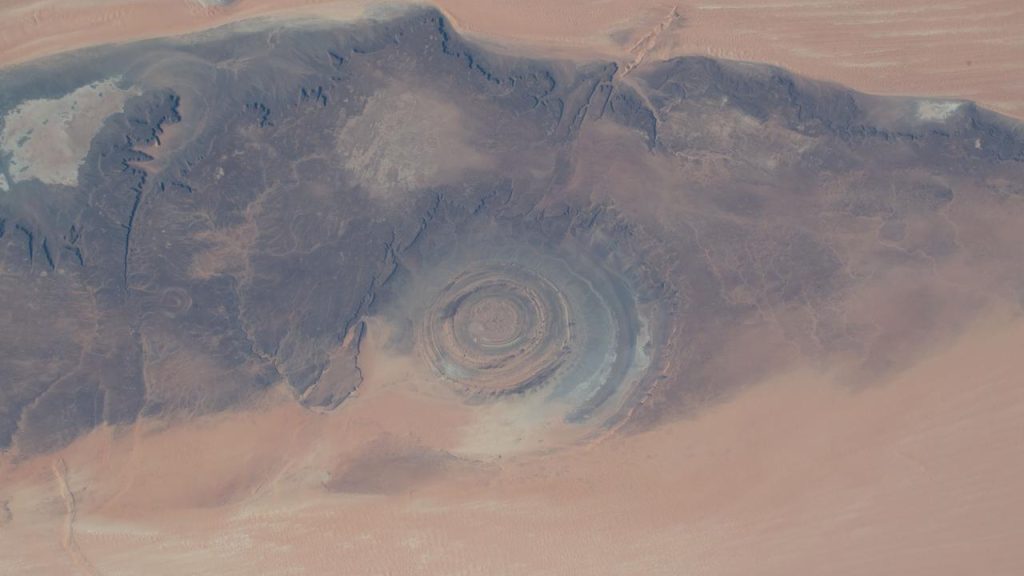
The Richat Structure, or “Eye of the Sahara,” in Mauritania is a large circular formation that some believe could be the remnants of Atlantis. Its concentric rings match Plato’s description of the island’s layout. Though it’s a natural geological formation, its resemblance to Atlantis’s layout has sparked interest among researchers.
The Bimini Road
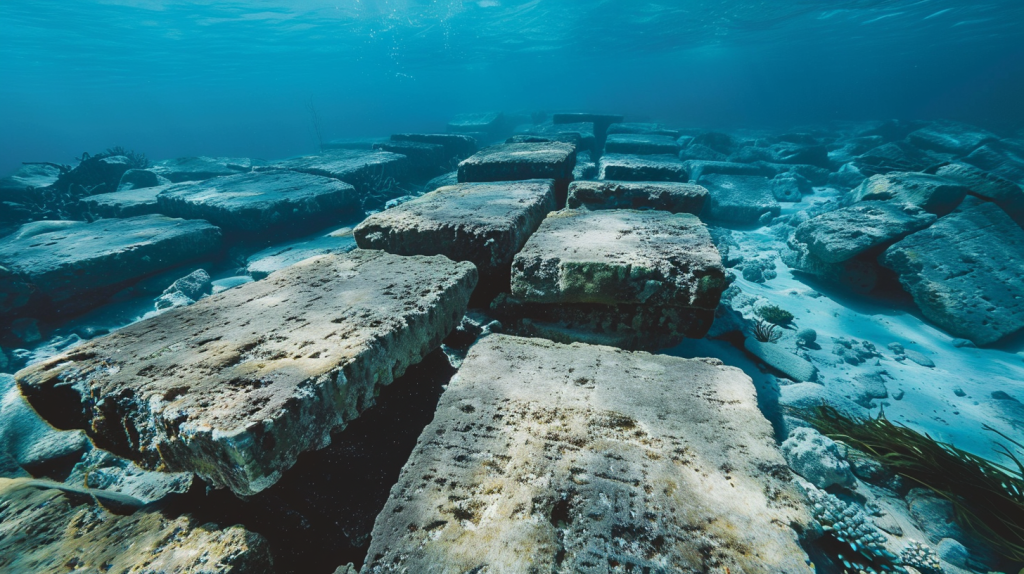
Located in the Bahamas, the Bimini Road is an underwater formation of rectangular stones that some claim are the remnants of an ancient road leading to Atlantis. While most scientists argue it is a natural formation, the Bimini Road continues to intrigue those searching for evidence of a lost civilization in the Atlantic.
The Azores Islands
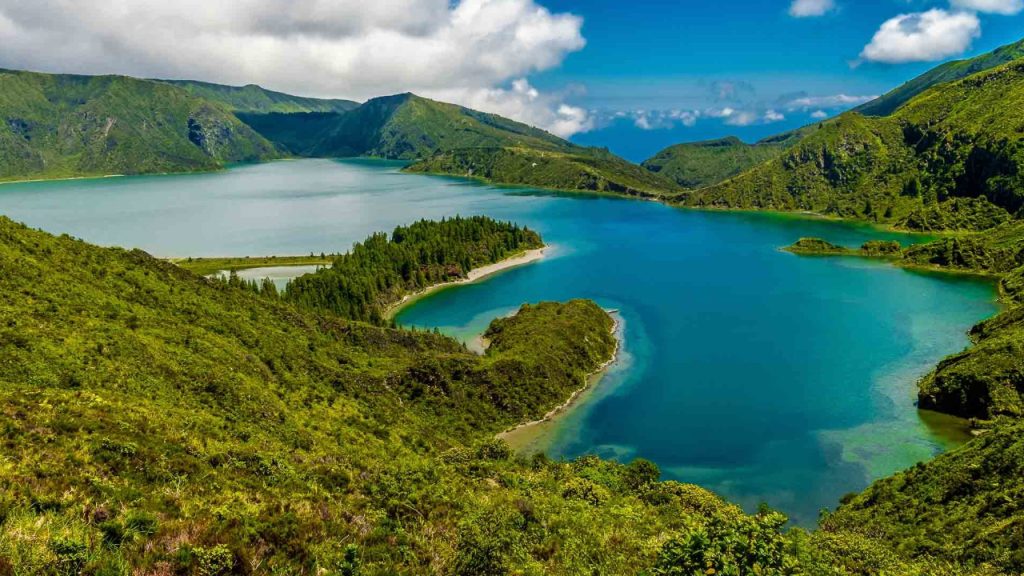
The Azores, a group of islands in the North Atlantic, are another candidate for the location of Atlantis. These islands are the peaks of underwater mountains and have been linked to submerged lands that may have inspired the Atlantis myth. The volcanic activity in the area also ties into Plato’s description of Atlantis’s destruction.
The Story of Helike
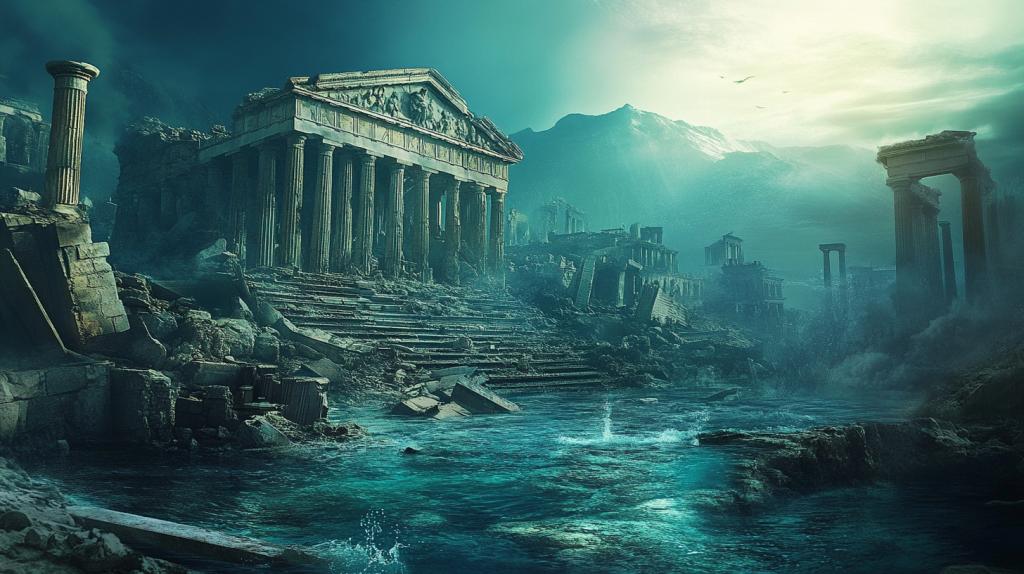
The Greek city of Helike was destroyed by an earthquake and tsunami in 373 BCE, sinking into the sea overnight. The sudden and dramatic end of Helike bears a striking resemblance to the story of Atlantis. Archaeologists have even discovered the remains of Helike underwater, lending credence to the idea that Atlantis could have been a real place.
Ancient Egyptian Records
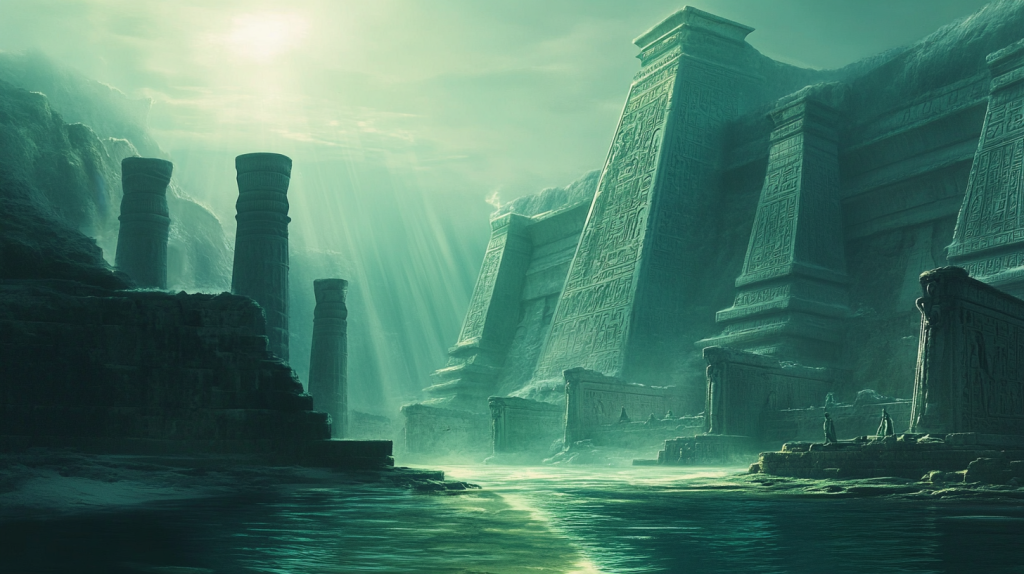
Plato claimed that the story of Atlantis was passed down from Egyptian priests to the Greek lawgiver Solon. Some researchers believe that ancient Egyptian records, now lost, could have contained references to a real civilization that inspired the Atlantis story. The idea that the Egyptians knew of a distant, advanced civilization adds weight to the theory of Atlantis’s existence.
The Connection to the Sea Peoples
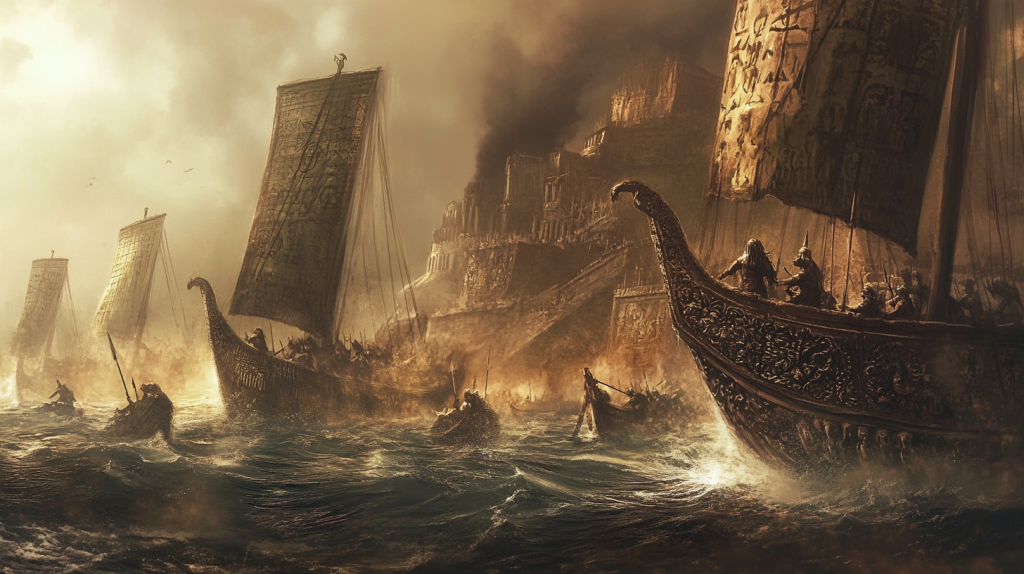
The mysterious Sea Peoples, who attacked ancient civilizations around the Mediterranean, are sometimes linked to Atlantis. Their origins are unknown, but they were powerful and seemed to disappear as quickly as they arrived. Some speculate that the Sea Peoples were Atlanteans fleeing their sinking homeland, spreading chaos in their wake.
The Lost Continent of Lemuria
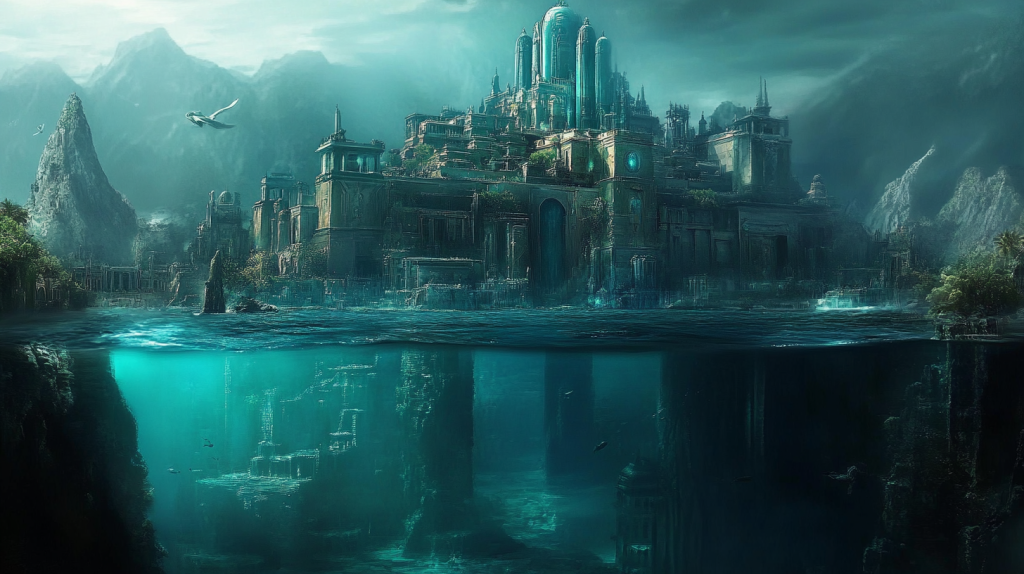
Lemuria is another mythical lost continent, often associated with the Indian Ocean. While Lemuria and Atlantis are distinct legends, some theories suggest they could be connected or that the Atlantis myth was influenced by earlier stories of Lemuria. Both legends speak to ancient, advanced civilizations that vanished without a trace.
Underwater Ruins of Yonaguni
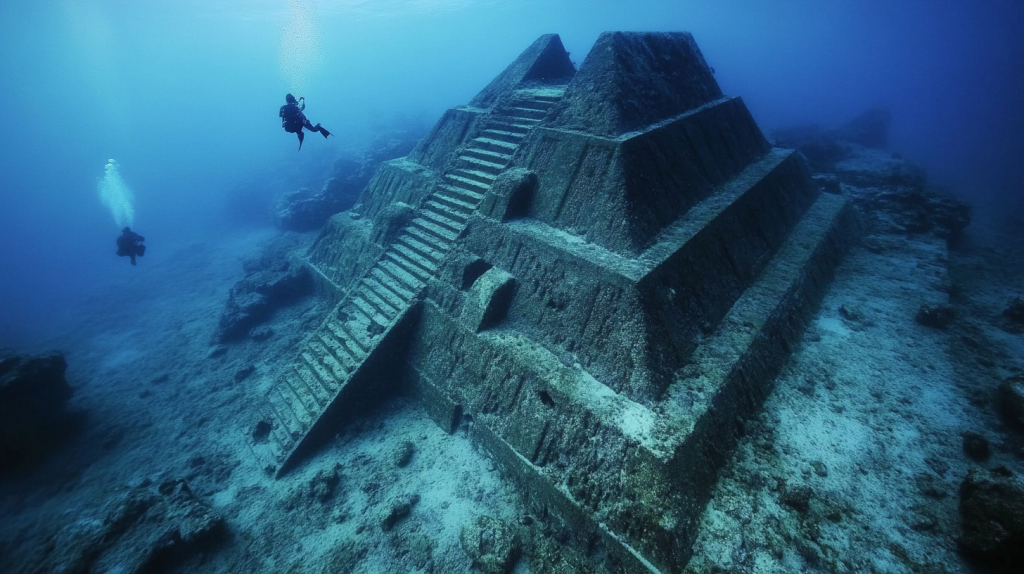
Off the coast of Yonaguni, Japan, lies a series of underwater structures that resemble stepped pyramids and other architectural features. While many believe these formations are natural, some argue they could be the remains of an ancient civilization, possibly connected to Atlantis. The mystery of Yonaguni adds another piece to the puzzle.
The Myth of Thule
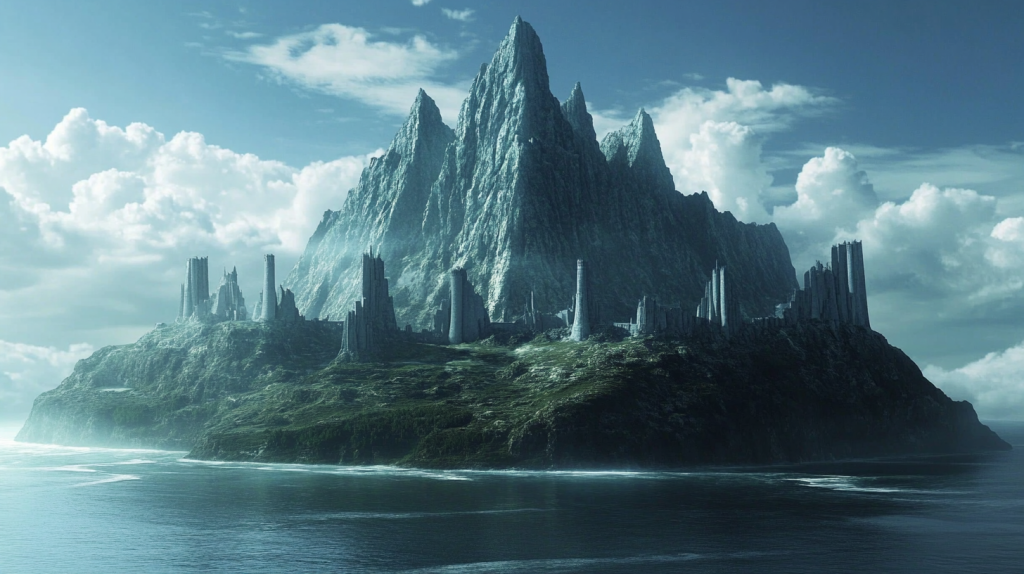
Thule was an island mentioned by ancient Greek and Roman geographers as the northernmost region of the known world. Like Atlantis, Thule was said to be a mysterious and distant land. Some researchers suggest that Thule and Atlantis might be related myths or that Thule could be another name for the lost city.
The Search in Antarctica
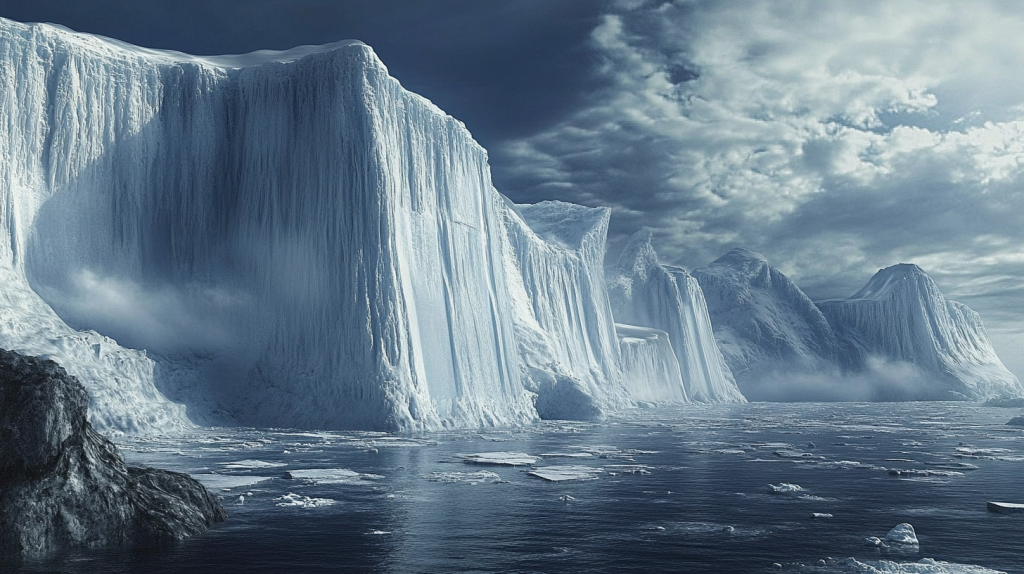
Some fringe theories propose that Atlantis could be buried beneath the ice of Antarctica. These theories often cite maps showing Antarctica without ice and suggest that an ancient civilization might have thrived there before it froze. While highly speculative, the idea of Atlantis in Antarctica adds a fascinating twist to the mystery.
Geological Evidence of Sunken Lands
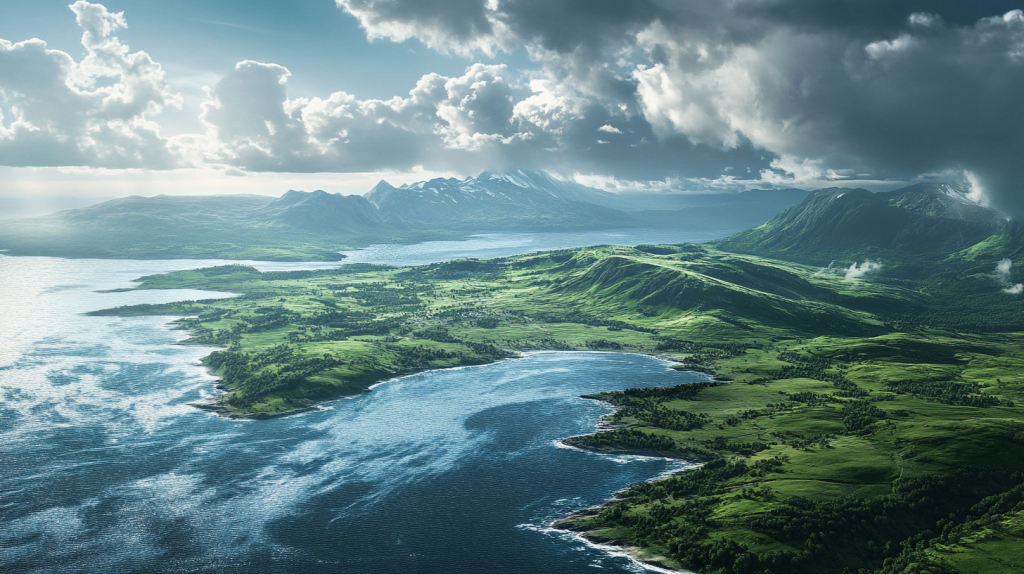
Geological studies have revealed that several large landmasses, now submerged, once existed in areas like the Mediterranean and the Atlantic. These sunken lands, which could have supported advanced civilizations, offer a possible explanation for the Atlantis legend. The discovery of these lands shows that the idea of a lost continent isn’t entirely outlandish.
The Enduring Fascination
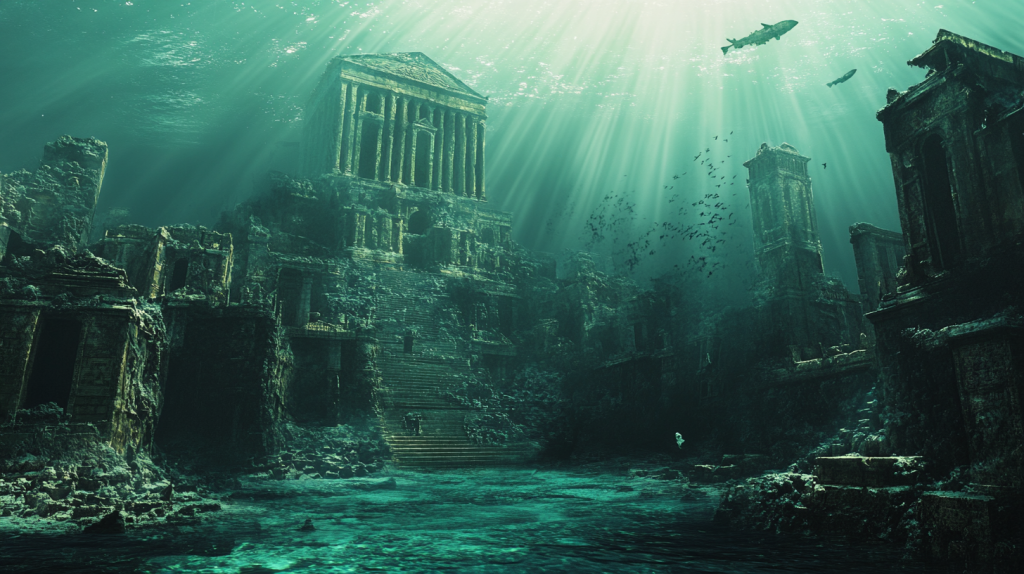
Finally, the most compelling clue to Atlantis’s existence might be the enduring fascination with the legend. For centuries, people have been drawn to the idea of a lost, utopian civilization, inspiring explorers, writers, and scientists alike. This fascination suggests that the story of Atlantis resonates deeply with our desire to uncover hidden truths and explore the unknown.
17 Old Wives’ Tales That Are Actually True

Old wives’ tales have been passed down through generations, often dismissed as mere superstition. However, many of these age-old beliefs are rooted in truth. From health tips to weather predictions, these stories from the past can surprise us with their accuracy. Here are 17 old wives’ tales that are actually true.
Read More: 17 Old Wives’ Tales That Are Actually True
Ellen has been obsessed with logic puzzles, jigsaws, and cryptograms since she was a kid. After learning she was taught how to play chess wrong by a family friend (so they could win), she joined her school chess club and the rest is history.
